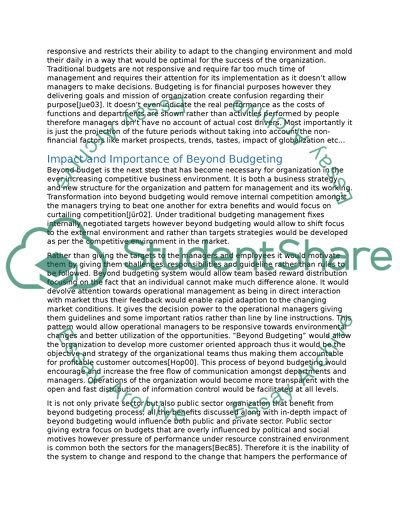Cite this document
(“Management & Budgetary Control and the Beyond Budgeting debate Essay”, n.d.)
Management & Budgetary Control and the Beyond Budgeting debate Essay. Retrieved from https://studentshare.org/finance-accounting/1633567-management-budgetary-control-and-the-beyond-budgeting-debate
Management & Budgetary Control and the Beyond Budgeting debate Essay. Retrieved from https://studentshare.org/finance-accounting/1633567-management-budgetary-control-and-the-beyond-budgeting-debate
(Management & Budgetary Control and the Beyond Budgeting Debate Essay)
Management & Budgetary Control and the Beyond Budgeting Debate Essay. https://studentshare.org/finance-accounting/1633567-management-budgetary-control-and-the-beyond-budgeting-debate.
Management & Budgetary Control and the Beyond Budgeting Debate Essay. https://studentshare.org/finance-accounting/1633567-management-budgetary-control-and-the-beyond-budgeting-debate.
“Management & Budgetary Control and the Beyond Budgeting Debate Essay”, n.d. https://studentshare.org/finance-accounting/1633567-management-budgetary-control-and-the-beyond-budgeting-debate.


